Scientific Council
An independent scientific body composed by scientists, experts and professors from across the globe, to equip WFO with the best scientific advice to enhance further the science-sound perspectives of the farmers’ voice in the international debate around agriculture and food systems.
CALL FOR INTEREST: WFO Scientific Council Seeks Scientists and Experts to advance the Farmer-Driven, Solution-Oriented, Science-Based Approach to Global Agriculture Decision-Making.
FIND OUT MORE: https://bit.ly/WFO_SC_CallForInterest2023
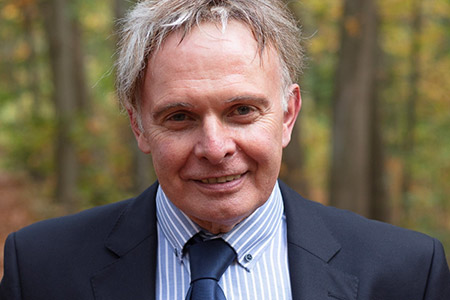
Daniel Berckmanns
Daniel Berckmanns
 Daniel Berckmans has a master and a PhD in Bioengineering. Headed as full Professor for 25 years the research Division M3-BIORES (Measure, Model and Manage Bio responses), Department of Biosystems at the Catholic University of Leuven (⁰1425, 60.000 students). Part-time connected to the University of Tennessee USA. His research focus is on real-time monitoring of health and wellbeing of individual humans and animals. He co-authored over 300 peer-reviewed publications, over 400 papers, participated in 64 PhD commissions in 9 countries and promoted over 200 Master theses. Since 1982, 19 products were co-developed for the world market with industrial partners. He is co-inventor of 20 patents and coordinated several EU-projects. In a recent project with 20 partners and 20 farmers, 4 new spin-off companies were started in the field of Precision Livestock Farming.
Daniel Berckmans has a master and a PhD in Bioengineering. Headed as full Professor for 25 years the research Division M3-BIORES (Measure, Model and Manage Bio responses), Department of Biosystems at the Catholic University of Leuven (⁰1425, 60.000 students). Part-time connected to the University of Tennessee USA. His research focus is on real-time monitoring of health and wellbeing of individual humans and animals. He co-authored over 300 peer-reviewed publications, over 400 papers, participated in 64 PhD commissions in 9 countries and promoted over 200 Master theses. Since 1982, 19 products were co-developed for the world market with industrial partners. He is co-inventor of 20 patents and coordinated several EU-projects. In a recent project with 20 partners and 20 farmers, 4 new spin-off companies were started in the field of Precision Livestock Farming.Daniel is worldwide considered as the spiritual father of the field of Precision Livestock Farming: real-time monitoring of animals with technology: microphones, camera’s, and sensors. He co-started the European Committee for Precision Livestock Farming that organizes since 2003 the 2-yearly European Conference for Precision Livestock Farming ECPLF. Today the conference is organized in agreement with the “Asian Conference for PLF” (ACPLF) and the “US Conference for PLF” (USCPLF).
He co-initiated the first European Master’s in Human Health Engineering at the KU Leuven: technology for monitoring healthy people. Daniel is co-founder of 3 spin-off companies: BioRICS NV in 2006, BioRICS INC in San Francisco in 2016 and SoundTalks in 2011. KU Leuven was named the seventh most innovative university worldwide in 2020 with 135 spin-off companies started so far. This makes KU Leuven the most innovative university outside of the United States.

Amaryllis Blin
Amaryllis Blin
 Amaryllis Blin is an agricultural engineer who graduated from AgroParisTech with a specialisation in livestock and plant production, and she is also a qualified nutritionist. She began her career at the French Ministry of Agriculture and Food as a plant epidemiology and crop protection project manager.
Amaryllis Blin is an agricultural engineer who graduated from AgroParisTech with a specialisation in livestock and plant production, and she is also a qualified nutritionist. She began her career at the French Ministry of Agriculture and Food as a plant epidemiology and crop protection project manager.
She then joined the Economics Department of the Fédération Nationale des Syndicats d’Exploitants Agricole (FNSEA), where she focused on valorising French agricultural production and defending farmers’ remuneration, mainly through national and European legislation. At the European level, she served as an expert for the European Economic and Social Committee (EESC), contributing to several opinions.
Currently, she participates in the development and structuration of the French cereal sector at Intercéréales, the interprofessional organisation. Working across all stages from production to processing, she places a strong emphasis on enhancing competitiveness, creating value and sustainability to contribute to building a robust and resilient French cereal sector, a key foundation of global food security.
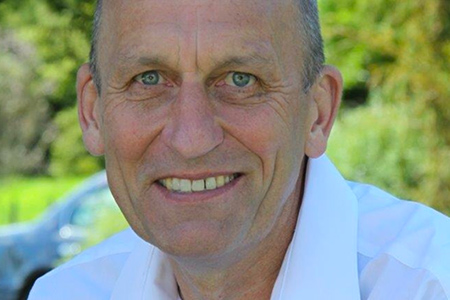
Harry Clark
Dr. Harry Clark
 Dr. Harry Clark is the Special Representative for the Global Research Alliance (GRA). Based at the New Zealand Agricultural Greenhouse Gas Research Centre (NZAGRC), his role is to act as an ambassador for the GRA. Harry is also the Chief Scientist of the New Zealand Agricultural Greenhouse Gas Research Centre (NZAGRC), a government-funded entity established in 2009 to develop technologies and practices to reduce GHG emissions from the New Zealand agricultural sector. He is also the Special Representative of the Global Research Alliance on Agricultural Greenhouse Gases (GRA). He was a member of New Zealand’s Interim Climate Change Committee from 2017 to 2019 and served as one of New Zealand’s seven Climate Change Commissioners from 2019 to 2021. He was appointed a member of the New Zealand Order of Merit in 2014 for services to environmental science.
Dr. Harry Clark is the Special Representative for the Global Research Alliance (GRA). Based at the New Zealand Agricultural Greenhouse Gas Research Centre (NZAGRC), his role is to act as an ambassador for the GRA. Harry is also the Chief Scientist of the New Zealand Agricultural Greenhouse Gas Research Centre (NZAGRC), a government-funded entity established in 2009 to develop technologies and practices to reduce GHG emissions from the New Zealand agricultural sector. He is also the Special Representative of the Global Research Alliance on Agricultural Greenhouse Gases (GRA). He was a member of New Zealand’s Interim Climate Change Committee from 2017 to 2019 and served as one of New Zealand’s seven Climate Change Commissioners from 2019 to 2021. He was appointed a member of the New Zealand Order of Merit in 2014 for services to environmental science.
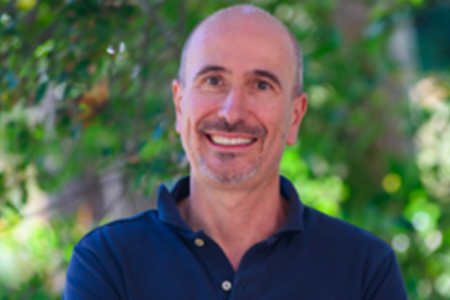
Paolo D’Odorico
Prof Paolo D’Odorico
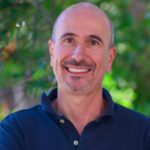 Prof Paolo D’Odorico is the Thomas J Graff Professor of Natural Resources in the Department of Environmental Science, Policy & Management at the University of California Berkeley. Paolo D’Odorico’s research focuses on the role of hydrological processes in the functioning of terrestrial ecosystems. His group’s work has highlighted the role played by positive feedback with the physical environment on the resilience of savannas, dry tropical forests, desert shrublands, freshwater wetlands, mangrove swamps, and seagrass meadows. Their work has also shown how environmental noise may increase the complexity of ecosystem dynamics by inducing new states, bifurcations, or pattern formation. He is currently investigating the globalization of water through virtual water trade and international land investments, and its impact on water equity, societal resilience, environmental stewardship, and food security. This research is highlighting the crucial role of water in agriculture and energy production. They are focusing in particular on irrigation and the extent to which the local water resources constrain sustainable irrigation across major agricultural regions of the planet both under current and climate change conditions. They are also evaluating the value created by irrigation in agriculture.
Prof Paolo D’Odorico is the Thomas J Graff Professor of Natural Resources in the Department of Environmental Science, Policy & Management at the University of California Berkeley. Paolo D’Odorico’s research focuses on the role of hydrological processes in the functioning of terrestrial ecosystems. His group’s work has highlighted the role played by positive feedback with the physical environment on the resilience of savannas, dry tropical forests, desert shrublands, freshwater wetlands, mangrove swamps, and seagrass meadows. Their work has also shown how environmental noise may increase the complexity of ecosystem dynamics by inducing new states, bifurcations, or pattern formation. He is currently investigating the globalization of water through virtual water trade and international land investments, and its impact on water equity, societal resilience, environmental stewardship, and food security. This research is highlighting the crucial role of water in agriculture and energy production. They are focusing in particular on irrigation and the extent to which the local water resources constrain sustainable irrigation across major agricultural regions of the planet both under current and climate change conditions. They are also evaluating the value created by irrigation in agriculture.
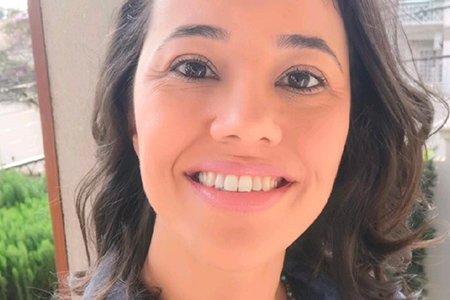
Mariana de Aragão Pereira
Dr. Mariana de Aragão Pereira
 Dr. Mariana de Aragão Pereira is a researcher “A” from the Brazilian Agricultural Research Corporation – EMBRAPA since 2001, initially working at the Strategic Management Secretary (SGE) and, from 2004, working at Embrapa Beef Cattle research unit. She worked as a research assistant at the Agribusiness and Economics Research Unit (AERU), Lincoln University, from 2007 to 2008. She works with Rural Economics and Farm Management, with emphasis on beef cattle systems and production costs, economics applied to integrated farming systems, decision-making and technology adoption, and farm management, including the development of management tools. She is a member of the Management Councils of the Environmental Protected Area of Ceroula Creek/MS and Lajeado/MS, a representative of South America at the International Farm Management Association (IFMA) Council and the coordinator of the Good Agricultural Practices Program – Brazilian GAP beef cattle. In July/21, she took a position as manager of the Beef Production Systems Research Group at Embrapa Beef Cattle. She is also an ad hoc reviewer for several Brazilian and international journals and is a project consultant for state funding agencies and Embrapa.
Dr. Mariana de Aragão Pereira is a researcher “A” from the Brazilian Agricultural Research Corporation – EMBRAPA since 2001, initially working at the Strategic Management Secretary (SGE) and, from 2004, working at Embrapa Beef Cattle research unit. She worked as a research assistant at the Agribusiness and Economics Research Unit (AERU), Lincoln University, from 2007 to 2008. She works with Rural Economics and Farm Management, with emphasis on beef cattle systems and production costs, economics applied to integrated farming systems, decision-making and technology adoption, and farm management, including the development of management tools. She is a member of the Management Councils of the Environmental Protected Area of Ceroula Creek/MS and Lajeado/MS, a representative of South America at the International Farm Management Association (IFMA) Council and the coordinator of the Good Agricultural Practices Program – Brazilian GAP beef cattle. In July/21, she took a position as manager of the Beef Production Systems Research Group at Embrapa Beef Cattle. She is also an ad hoc reviewer for several Brazilian and international journals and is a project consultant for state funding agencies and Embrapa.
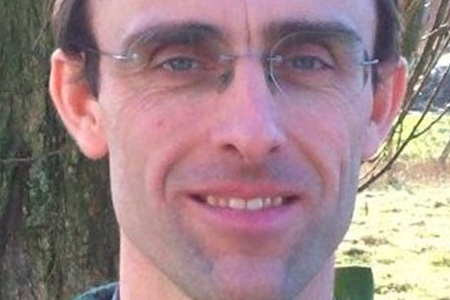
Stephan De Smet
Stephan De Smet
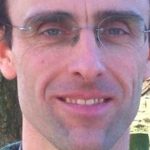 Stephan De Smet graduated in 1986 as an Agricultural Engineer at Ghent University with specialisation in Animal Production. Since 1987 he has been associated with the Department of Animal Production, Ghent University, first as a PhD student and later as a research project assistant and post-doctoral scientist before becoming assistant professor.
Stephan De Smet graduated in 1986 as an Agricultural Engineer at Ghent University with specialisation in Animal Production. Since 1987 he has been associated with the Department of Animal Production, Ghent University, first as a PhD student and later as a research project assistant and post-doctoral scientist before becoming assistant professor.
He performed his PhD research on the role of rumen protozoa. He later moved to meat quality research with particular interest in the relationship between carcass quality and sensory and technological meat quality traits.
He is now a full professor in Animal Science at Ghent University, Belgium, responsible for teaching general and advanced courses in Animal Production, Animal Breeding and Meat Science. His current research focuses on meat quality and the health value of meat and meat products with an emphasis on optimisation of the composition and oxidative stability of meat from different species. He is also the current president of the Belgian Association of Meat Science and Technology (BAMST). He is (co-)author of >150 scientific publications in peer-reviewed journals and regularly referees manuscripts for several journals.
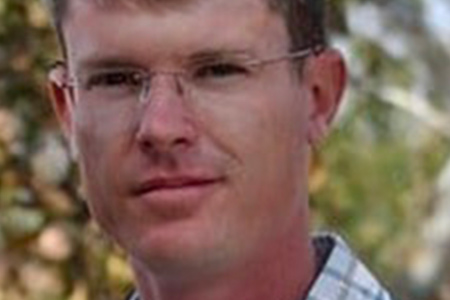
Linde du Toit
Dr Lindeque du Toit
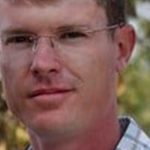 Dr Lindeque du Toit is a senior lecturer in the Department of Animal Science in the Faculty of Natural and Agricultural Sciences at the University of Pretoria. He obtained his BSc(Agric) in Animal and Pasture Science and MSc(Agric) in Animal Nutrition between 1996 and 2006, and a PhD in Animal Nutrition from UP in 2017. His research area is focused on meeting the challenge to increase the production of quality livestock protein and fibre to meet increasing demand, adapt to environmental changes and reduce the impact of livestock production systems on the environment. His current research projects are focussed on addressing these challenges by firstly developing and improving country-specific greenhouse gas emission factors for all classes of livestock in South Africa including privately owned game and secondly by identifying and evaluating practical mitigation strategies that have a high probability of being adopted by livestock producers and industry.
Dr Lindeque du Toit is a senior lecturer in the Department of Animal Science in the Faculty of Natural and Agricultural Sciences at the University of Pretoria. He obtained his BSc(Agric) in Animal and Pasture Science and MSc(Agric) in Animal Nutrition between 1996 and 2006, and a PhD in Animal Nutrition from UP in 2017. His research area is focused on meeting the challenge to increase the production of quality livestock protein and fibre to meet increasing demand, adapt to environmental changes and reduce the impact of livestock production systems on the environment. His current research projects are focussed on addressing these challenges by firstly developing and improving country-specific greenhouse gas emission factors for all classes of livestock in South Africa including privately owned game and secondly by identifying and evaluating practical mitigation strategies that have a high probability of being adopted by livestock producers and industry.
Dr Du Toit lectures subjects in livestock production systems, pasture and range management, animal nutrition and small stock nutrition and management. He is currently a serving member of the South African Society for Animal Science and a member of the South African Council for Natural Scientific Professionals.
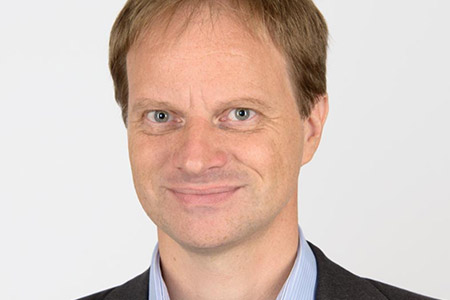
Peer Ederer
Peer Ederer
 Prof Dr Ederer directs and coordinates the Global Food and Agribusiness Network (GFAN). GFAN provides a platform for senior decision makers in the food and agribusiness industry to define their future strategies and perspectives (more at foodandagribusiness.org).
Prof Dr Ederer directs and coordinates the Global Food and Agribusiness Network (GFAN). GFAN provides a platform for senior decision makers in the food and agribusiness industry to define their future strategies and perspectives (more at foodandagribusiness.org).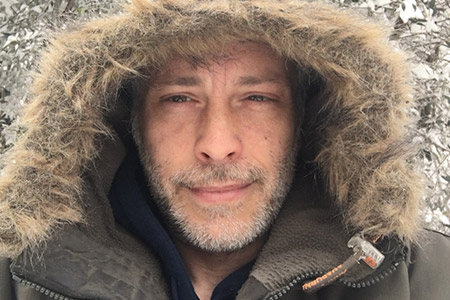
Vanni Frajese
Vanni Frajese
 Prof Giovanni V. Frajese is currently the director of the “SMART Lab” at the “University of Rome Foro Italico” and researches medicine and biotechnologies with interest in the field of Endocrinology, Oncology, Metabolism and Nutrition. He graduated in 1996 in Medicine at the University of Rome “Tor Vergata” and specialized in Endocrinology and Dysmetabolic diseases in 2001. He has authored over 70 papers in international peer-reviewed scientific journals. He is a Member of several societies, including the Endocrine Society (USA), American Diabetes Association (ADA), N.Y. Academy of Sciences, and SIE (Italian Society of Endocrinology).
Prof Giovanni V. Frajese is currently the director of the “SMART Lab” at the “University of Rome Foro Italico” and researches medicine and biotechnologies with interest in the field of Endocrinology, Oncology, Metabolism and Nutrition. He graduated in 1996 in Medicine at the University of Rome “Tor Vergata” and specialized in Endocrinology and Dysmetabolic diseases in 2001. He has authored over 70 papers in international peer-reviewed scientific journals. He is a Member of several societies, including the Endocrine Society (USA), American Diabetes Association (ADA), N.Y. Academy of Sciences, and SIE (Italian Society of Endocrinology).
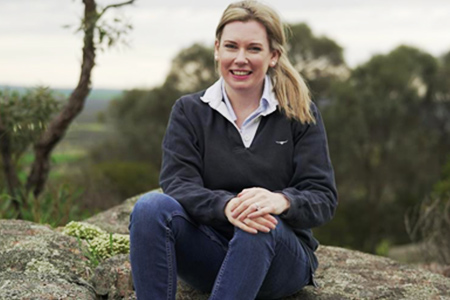
Kate Gunn
Kate Gunn
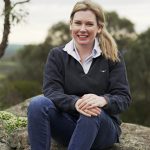 Kate Gunn is an Associate Professor at the University of South Australia and has been a passionate researcher and tireless advocate in the field of farmers’ wellbeing for approximately 15 years, fueled by growing up on and staying closely connected to her family’s mixed sheep and grain farming enterprise in South Australia, and her experience working as a Clinical Psychologist.
Kate Gunn is an Associate Professor at the University of South Australia and has been a passionate researcher and tireless advocate in the field of farmers’ wellbeing for approximately 15 years, fueled by growing up on and staying closely connected to her family’s mixed sheep and grain farming enterprise in South Australia, and her experience working as a Clinical Psychologist.
A/Prof Gunn’s contributions at multiple levels have not only improved scientific understanding of farmers’ drivers of distress (and rural health disparities more generally) but importantly, she has also used her clinical psychology and behavioural science skills to work with farmers to develop and evaluate, interventions to address these.
A/Prof Gunn has also played a significant role in shaping policy, including her invitation to be part of the inaugural South Australian Premiers’ Council for Suicide Prevention. This council successfully formulated and implemented Australia’s first Suicide Prevention Bill. Her translational research’s value has garnered recognition through various awards, such as the South Australian Young Achiever of the Year Award (2013), a Churchill Fellowship (2017), Suicide Prevention Australia’s prestigious National Award for Innovation (2022), and the Kondinin Group/ABC Rural’s National Farmer of the Year Award for Excellence in Agricultural Research (2022).
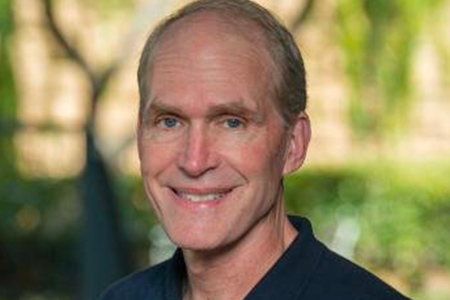
Rob Jackson
Rob Jackson

Rob Jackson is an Earth System Science Professor at the Stanford University; a Senior Fellow at Stanford Woods Institute for the Environment, and Senior Fellow at the Precourt Institute for Energy.
Dr Jackson and his lab examine the many ways people affect the Earth. They seek basic scientific knowledge and use it to help shape policies and reduce the environmental footprint of global warming, energy extraction, and other issues. They’re currently examining the effects of climate change and droughts on forest mortality and grassland ecosystems. They are also working to measure and reduce greenhouse gas emissions through the Global Carbon Project (globalcarbonproject.org), which Jackson chairs; examples of new research Rob leads include establishing a global network of methane tower measurements at more than 80 sites worldwide and measuring and reducing methane emissions from oil and gas wells, city streets, and homes and buildings.
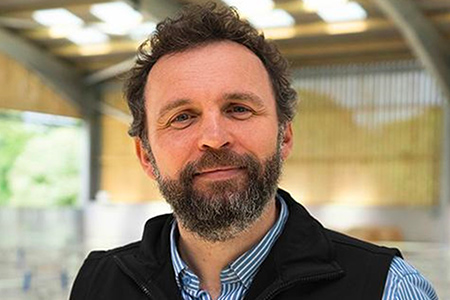
Michael Lee
Michael Lee
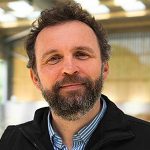 Professor Michael Lee is an expert in sustainable livestock systems, defining their role in securing global food security at the same time as protecting environmental health (Livestock’s role in human and planetary health). Michael is President of the European Federation of Animal Science Livestock Farming Systems Commission and Senior Vice President of the British Society of Animal Science.
Professor Michael Lee is an expert in sustainable livestock systems, defining their role in securing global food security at the same time as protecting environmental health (Livestock’s role in human and planetary health). Michael is President of the European Federation of Animal Science Livestock Farming Systems Commission and Senior Vice President of the British Society of Animal Science.
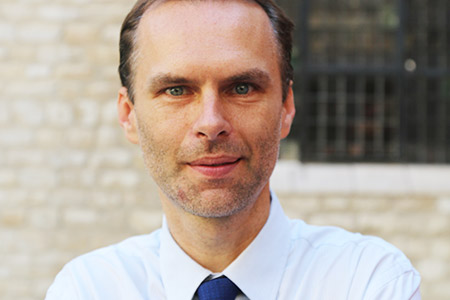
Frederic Leroy
Frederic Leroy
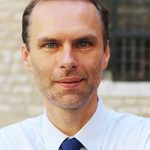 Frédéric Leroy (1974) graduated as Bioengineer and obtained a PhD in Applied Biological Sciences. He is a professor at the Vrije Universiteit Brussel (Belgium) and an expert in food technology, nutrition, and interdisciplinary research (‘food studies’), with a focus on animal-source foods.
Frédéric Leroy (1974) graduated as Bioengineer and obtained a PhD in Applied Biological Sciences. He is a professor at the Vrije Universiteit Brussel (Belgium) and an expert in food technology, nutrition, and interdisciplinary research (‘food studies’), with a focus on animal-source foods.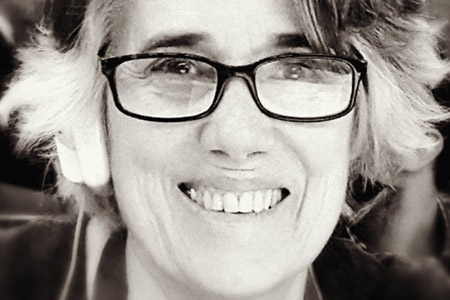
Susan Macmillan
Susan MacMillan
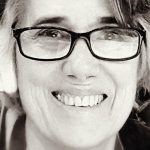 Susan MacMillan is an emeritus fellow at the International Livestock Research Institute, where she headed science communications, public awareness and advocacy work for more than 30 years. An American, she has a master’s degree in English from the University of California at Berkeley and has lived and worked in Kenya since 1972.
Susan MacMillan is an emeritus fellow at the International Livestock Research Institute, where she headed science communications, public awareness and advocacy work for more than 30 years. An American, she has a master’s degree in English from the University of California at Berkeley and has lived and worked in Kenya since 1972.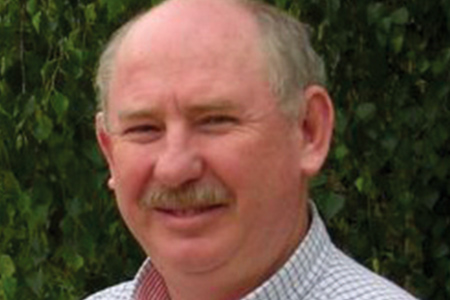
Neil Mann
Neil Mann
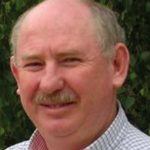 Neil is a Professor of Human Nutrition in the School of Agriculture and Food Science, Faculty of Veterinary and Agricultural Science at the University of Melbourne. Having previously held the position of Professor of Nutritional Biochemistry and head of Food and Nutrition Science at RMIT University for many years, Neil has over 30 years of experience in nutrition research, coordinating projects in the areas of long-chain fatty acids, obesity, diabetes, hunter-gather diets and aspects of metabolic syndrome.
Neil is a Professor of Human Nutrition in the School of Agriculture and Food Science, Faculty of Veterinary and Agricultural Science at the University of Melbourne. Having previously held the position of Professor of Nutritional Biochemistry and head of Food and Nutrition Science at RMIT University for many years, Neil has over 30 years of experience in nutrition research, coordinating projects in the areas of long-chain fatty acids, obesity, diabetes, hunter-gather diets and aspects of metabolic syndrome.
He is a respected voice internationally on nutrition, health, physiology, biochemistry and food science. He has been involved with the Nutrition Society of Australia, the Nutrition Accreditation Committee, the Asia Pacific Region International Life Sciences Institute and the International Diabetes Institute.
Neil has authored over 80 refereed research papers in high-impact factor international nutrition and medical journals, and more than 100 national and international conference proceedings.
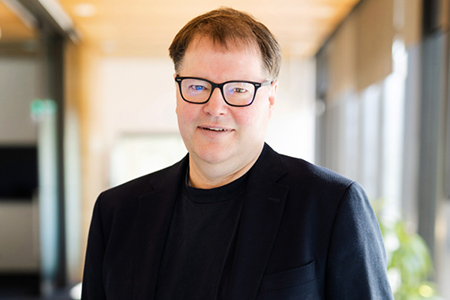
Warren Mcnabb
Warren McNabb
 Warren McNabb is a Professor of Nutritional Sciences at the Riddet Institute. His research interests include nutrition for health, sustainable nutrition, human-microbiome interactions, and physiology and metabolism.
Warren McNabb is a Professor of Nutritional Sciences at the Riddet Institute. His research interests include nutrition for health, sustainable nutrition, human-microbiome interactions, and physiology and metabolism.
At the Riddet Institute, Prof Warren leads several programmes including the MBIE-funded programme, New Zealand Milks Mean More (NZ3M) and the Sustainable Nutrition Initiative (SNI) which he leads. Warren is also a Principle Investigator in the Riddet Institute CoRE Research programme and an Associate Investigator in the HVN National Science Challenge priority research programmes’, Healthy Digestion and Infant Health. His focus is on food structures-nutrient digestion interactions, clinical investigations of nutrition, microbe-human interactions, gastrointestinal function and sustainable nutrition.
Prof Warren received the New Zealand Institute of Agricultural and Horticultural Sciences Fellowship in 2007. Since 2019, he has been recognized as a professional member of the New Zealand Institute of Food Science and Technology, the American Society of Nutrition, and the Canadian Nutrition Society. Additionally, he has contributed to numerous national and international research advisory and funding panels.
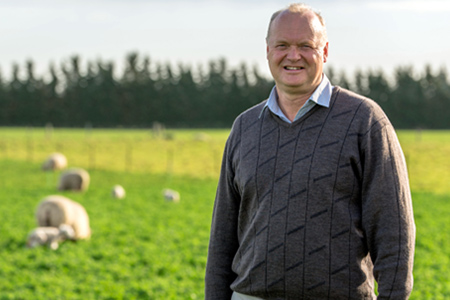
Derrick Moot
Derrick Moot
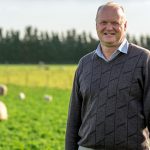 Professor Derick Moot is a Professor of Plant Science at the Department of Agricultural Sciences, Agriculture & Life Sciences Faculty, Lincoln University, Canterbury, New Zealand.
Professor Derick Moot is a Professor of Plant Science at the Department of Agricultural Sciences, Agriculture & Life Sciences Faculty, Lincoln University, Canterbury, New Zealand.
Professor Moot’s research focuses on dryland (rainfed) sheep and beef systems. It recognises that water and nutrients, particularly nitrogen are the main limitations to all plant growth worldwide. Therefore, he investigates how to use suitably adapted legumes, with high water use efficiency, to drive nitrogen cycling and underpin animal production.
His work provides agronomic solutions for sustainable pastoral farm systems in New Zealand. He helps create farm systems resilient to climate change, particularly drought and enhances the social and welfare outcomes for rural communities. Professor Moot’s work is recognised nationally through his engagement with policy development through MPI, ECAN and industry bodies.
Professor Moot’s research team is based around 100+ post-graduate students who have aided the creation of plant-based solutions to overcome biotic and abiotic stresses induced by cold and or dry climates, low soil pH and hence high aluminium toxicity. His team develops environmentally, socially and financially sustainable farm systems for hill and high-country farms.
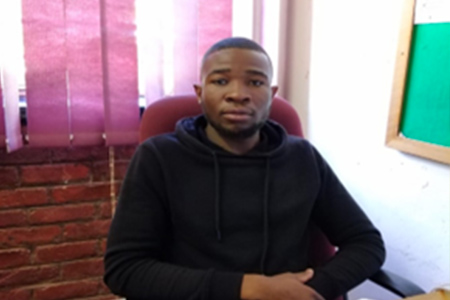
Kopedi Alfred Ntabane
Kopedi Alfred Ntabane
 Mr Alfred Koped Ntabane is an expert in sustainable agricultural practices and administration. Mr Ntabane is a professional scientist working with the Department of Agriculture Rural Development and Land Reform in South Africa. His expertise lies in sustainable agriculture and socioeconomic progress, with a particular dedication to small-scale farmers. Mr. Ntabane is committed to promoting nature-based solutions that enhance biodiversity and aid in climate adaptation.
Mr Alfred Koped Ntabane is an expert in sustainable agricultural practices and administration. Mr Ntabane is a professional scientist working with the Department of Agriculture Rural Development and Land Reform in South Africa. His expertise lies in sustainable agriculture and socioeconomic progress, with a particular dedication to small-scale farmers. Mr. Ntabane is committed to promoting nature-based solutions that enhance biodiversity and aid in climate adaptation.
Furthermore, he actively engages in professional gatherings such as meetings, conferences, and seminars for scientists. This active involvement enables him to gain insights into the unspoken needs within the agricultural field and generate innovative ideas to bolster emerging approaches or initiatives in the sector.
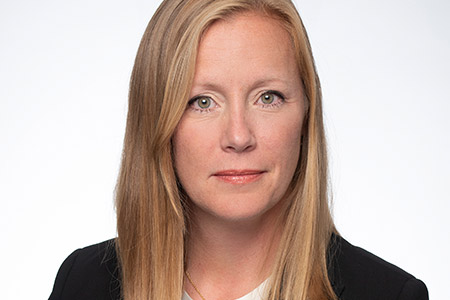
Geneviève Parent
Geneviève Parent
 Geneviève Parent is a full-time professor at the Law Faculty of Laval University and head of the Legal Research Chair in Food Diversity and Security. Her areas of interest are food security and national and inter-national agrifood law. Ms Parent is also a part-time member of the Canada Agricultural Review Tribunal and an associate member of the French Academy of Agriculture.
Geneviève Parent is a full-time professor at the Law Faculty of Laval University and head of the Legal Research Chair in Food Diversity and Security. Her areas of interest are food security and national and inter-national agrifood law. Ms Parent is also a part-time member of the Canada Agricultural Review Tribunal and an associate member of the French Academy of Agriculture.Enrico Perticone
Enrico Perticone
![]() Enrico is a Customs broker, registered in the Professional Register of Customs Brokers since 1989, focused on consultancy and training in customs and international trade matters. Since 2005 he has been a lecturer professor and chair holder of Customs Commodity at the “G. D’Annunzio”, School of Economics, Pescara (Master’s degree course in Legal Sciences for internationalisation and Master’s degree course in Economics and Commerce).
Enrico is a Customs broker, registered in the Professional Register of Customs Brokers since 1989, focused on consultancy and training in customs and international trade matters. Since 2005 he has been a lecturer professor and chair holder of Customs Commodity at the “G. D’Annunzio”, School of Economics, Pescara (Master’s degree course in Legal Sciences for internationalisation and Master’s degree course in Economics and Commerce).
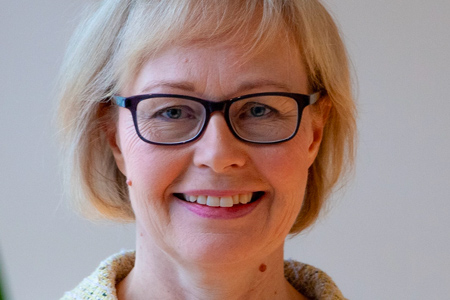
Liisa Pietola
Liisa Pietola
 Dr. Liisa Pietola, adjunct professor at the University of Helsinki in soil sciences (1998-), served in R&D for the fertilizer industry (2006-11) and in the Central Union of Agricultural Producers and Forest Owners in Finland MTK (2011-22) as head of environmental affairs, and chaired the environment working group of European farmers at the Copa-Cogeca (2014-18). Currently, she is a leading specialist on sustainability solutions in the transition of agriculture and forestry sectors in the Finnish Innovation Fund Sitra (www.sitra.fi/en), and an expert member of the EU Mission Board Soil Deal for Europe. She has her feet on the ground as an active farmer.
Dr. Liisa Pietola, adjunct professor at the University of Helsinki in soil sciences (1998-), served in R&D for the fertilizer industry (2006-11) and in the Central Union of Agricultural Producers and Forest Owners in Finland MTK (2011-22) as head of environmental affairs, and chaired the environment working group of European farmers at the Copa-Cogeca (2014-18). Currently, she is a leading specialist on sustainability solutions in the transition of agriculture and forestry sectors in the Finnish Innovation Fund Sitra (www.sitra.fi/en), and an expert member of the EU Mission Board Soil Deal for Europe. She has her feet on the ground as an active farmer.
Her expertise is focused on environmental externalities and impacts related to agriculture and forestry and soil functions, such as carbon sequestration to balance greenhouse gas emissions and climate change adaptation by soil care. She has competence in the recycling of nutrients and water quality protection, air quality and biodiversity of agro-forestry ecosystems and experience in landowner’s property rights and legislation proposals both in Finland and EU level.
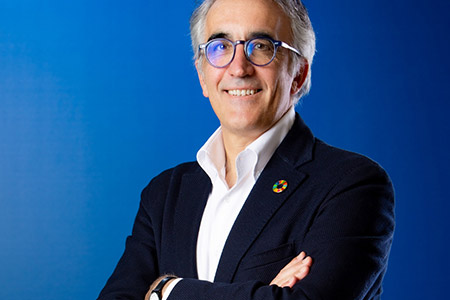
Angelo Riccaboni
Angelo Riccaboni
 Angelo Riccaboni is Full Professor of Management Control Systems at the Richard Goodwin School of Economics and Management of the University of Siena. He was Rector of the University of Siena from 2010 to 2016. He is a member of the Leadership Council of the United Nations’ Sustainable Development Solutions Network and Chair of the Regional Centre of the SDSN for the Mediterranean since 2012. Since 2017 he chairs PRIMA Foundation, located in Barcelona to implement a 10-year research and innovation programme on food systems and water resources, with a budget of 500 million euros funded by the European Commission and 19 Euro-Mediterranean Countries. His research focuses on the role of businesses and universities to promote the implementation of the United Nations’ Agenda 2030 and on innovation in the agrifood sector. He chairs the Steering Committee of the Santa Chiara Lab at the University of Siena. He is Member of the Scientific Committee of the World Farmers Organisation, Member of the International Academic Committee of the Institute for Sustainable Development Goals of Tsinghua University, Member of the Board of Directors of the University Bicocca in Milan. He is a Member of the EC sub-group on Mission Area Soil Health and Food of the ‘shadow’ strategic configuration of the Horizon Europe Programme Committee.
Angelo Riccaboni is Full Professor of Management Control Systems at the Richard Goodwin School of Economics and Management of the University of Siena. He was Rector of the University of Siena from 2010 to 2016. He is a member of the Leadership Council of the United Nations’ Sustainable Development Solutions Network and Chair of the Regional Centre of the SDSN for the Mediterranean since 2012. Since 2017 he chairs PRIMA Foundation, located in Barcelona to implement a 10-year research and innovation programme on food systems and water resources, with a budget of 500 million euros funded by the European Commission and 19 Euro-Mediterranean Countries. His research focuses on the role of businesses and universities to promote the implementation of the United Nations’ Agenda 2030 and on innovation in the agrifood sector. He chairs the Steering Committee of the Santa Chiara Lab at the University of Siena. He is Member of the Scientific Committee of the World Farmers Organisation, Member of the International Academic Committee of the Institute for Sustainable Development Goals of Tsinghua University, Member of the Board of Directors of the University Bicocca in Milan. He is a Member of the EC sub-group on Mission Area Soil Health and Food of the ‘shadow’ strategic configuration of the Horizon Europe Programme Committee.Previously he was Chair of the CRUI Foundation, the operating body of CRUI (the Association of Italian Rectors), Member of the Board of the International Association of Universities (IAU), Head of the IAU Working Group on sustainability. He was Dean of the Richard Goodwin Faculty of Economics and Management, Chair of the Association of Deans of Italian Faculties of Economics, Management and Statistics and President of SIDREA (Italian Society of Accounting and Business Administration Scholars).
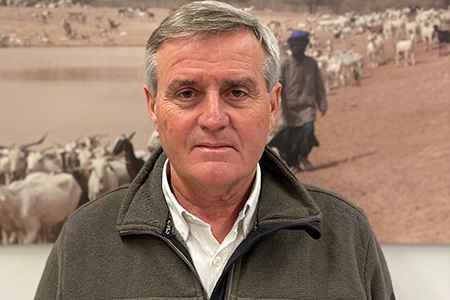
Bruno Ronchi
Bruno Ronchi
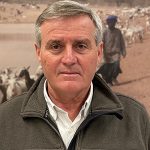 Bruno Ronchi is full professor of Animal Nutrition and Feeding at the Department of Agriculture and Forestry Science of Tuscia University (Italy). His research activities mainly focus on: effects of heat stress on ruminants; farm animal metabolism; effects of environmental contaminants; management of extensive livestock production systems. In his career: dean of the Faculty of Agriculture Science; President of Italian “Animal Science and Production Association”; Council member of the European Federation of Animal Science.
Bruno Ronchi is full professor of Animal Nutrition and Feeding at the Department of Agriculture and Forestry Science of Tuscia University (Italy). His research activities mainly focus on: effects of heat stress on ruminants; farm animal metabolism; effects of environmental contaminants; management of extensive livestock production systems. In his career: dean of the Faculty of Agriculture Science; President of Italian “Animal Science and Production Association”; Council member of the European Federation of Animal Science.
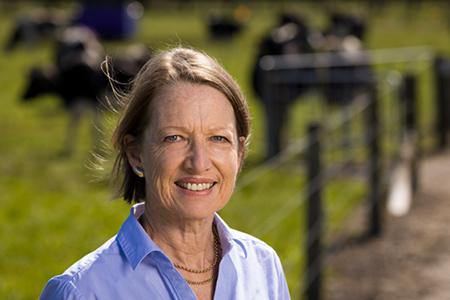
Jacqueline Rowarth
Jacqueline Rowarth
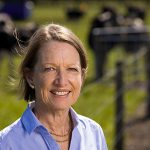 Professor Jacqueline Rowarth CNZM, FNZIAHS has a bachelor’s degree in Agricultural Science with honours in Environmental Agriculture and a PhD in Soil Science from Massey University. She has worked in research, education and management with Agresearch, Lincoln University, Unitec in Auckland, The University of Melbourne, Massey University, the University of Waikato, and the Environmental Protection Authority.
Professor Jacqueline Rowarth CNZM, FNZIAHS has a bachelor’s degree in Agricultural Science with honours in Environmental Agriculture and a PhD in Soil Science from Massey University. She has worked in research, education and management with Agresearch, Lincoln University, Unitec in Auckland, The University of Melbourne, Massey University, the University of Waikato, and the Environmental Protection Authority.
In addition, Prof Rowarth has held Government-appointed governance roles on the boards of Crop and Food Research, AGMARDT and New Zealand Fast Forward. She is currently a farmer-elected member of the Board of Directors for DairyNZ and of Ravensdown Co-operative Ltd., a producer-appointed Director for Deer Industry NZ, and a Director of NZ Animal Evaluation Ltd. She also holds the role of Adjunct Professor at Lincoln University.
Prof Rowarth is also a Past President of the New Zealand Institute of Agricultural and Horticultural Science and of the New Zealand Grassland Association. In 2008 she was awarded Companion of the New Zealand Order of Merit for services to Agricultural Science, in 2009 she was given the inaugural award of Agricultural Personality of the Year by Federated Farmers and in 2010 she was selected as the Agricultural Communicator of the Year by the Guild of Agricultural Communicators and Journalists. She is a frequent contributor to public debate in the media and remains committed to dispelling the myths that surround food production.
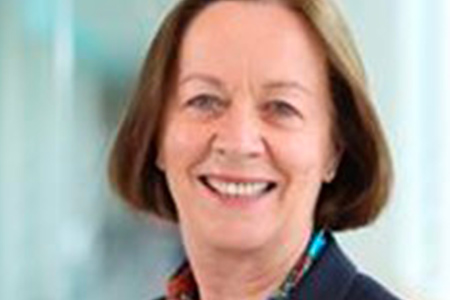
Alice Stanton
Alice Stanton
 Alice Stanton is a clinician-scientist. She is a registered Medical Specialist in Clinical Pharmacology & Therapeutics & General Internal Medicine with the Specialist Training Authority of the Medical Royal Colleges, UK, since 1997, and with the Medical Council, Ireland since 1998. She is currently a Fellow of the Royal Colleges of Physicians in Ireland and a Professor of Cardiovascular Therapeutics, RCSI. She has authored 130 peer-reviewed published papers, 4 book chapters, 4 editorials, 10 reviews, and over 250 abstracts, and has been the recipient of many educational and research awards. Over the last 20 years, she has received both fellowships and project grants from the European Society of Cardiology, the British Heart Foundation, the Medical Research Council (UK), the Engineering Physical Science Research Council (UK), the Health Research Board (Ireland), Ireland), and the European Commission Seventh Framework Programme.
Alice Stanton is a clinician-scientist. She is a registered Medical Specialist in Clinical Pharmacology & Therapeutics & General Internal Medicine with the Specialist Training Authority of the Medical Royal Colleges, UK, since 1997, and with the Medical Council, Ireland since 1998. She is currently a Fellow of the Royal Colleges of Physicians in Ireland and a Professor of Cardiovascular Therapeutics, RCSI. She has authored 130 peer-reviewed published papers, 4 book chapters, 4 editorials, 10 reviews, and over 250 abstracts, and has been the recipient of many educational and research awards. Over the last 20 years, she has received both fellowships and project grants from the European Society of Cardiology, the British Heart Foundation, the Medical Research Council (UK), the Engineering Physical Science Research Council (UK), the Health Research Board (Ireland), Ireland), and the European Commission Seventh Framework Programme.
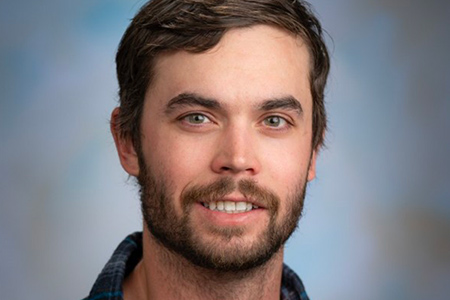
Logan Thompson
Logan Thompson
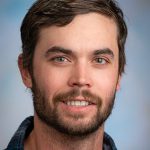 Logan grew up on a registered horned Hereford ranch in central Texas which instilled a passion to improve the sustainability of beef production by developing practical solutions for producers. Through his teaching appointment, he aims to give students the tools necessary to speak and understand the evolving space of sustainability and to be successful as the next generation of farmers and ranchers who will serve as stewards of the Great Plains. Logan started his bachelor’s degree at Sam Houston State University in Huntsville, TX before completing his degree at Texas Tech University in 2015. Following this he earned a Masters in beef sustainability at Oklahoma State University in 2017 and a PhD in ruminant nutrition at Michigan State University in 2021. Before joining Kansas State University in August of 2022, he served as a post-doctoral fellow at Colorado State University.
Logan grew up on a registered horned Hereford ranch in central Texas which instilled a passion to improve the sustainability of beef production by developing practical solutions for producers. Through his teaching appointment, he aims to give students the tools necessary to speak and understand the evolving space of sustainability and to be successful as the next generation of farmers and ranchers who will serve as stewards of the Great Plains. Logan started his bachelor’s degree at Sam Houston State University in Huntsville, TX before completing his degree at Texas Tech University in 2015. Following this he earned a Masters in beef sustainability at Oklahoma State University in 2017 and a PhD in ruminant nutrition at Michigan State University in 2021. Before joining Kansas State University in August of 2022, he served as a post-doctoral fellow at Colorado State University.
Logan’s predominant research interest is measuring greenhouse gas emissions in grazing systems and how grazing management impacts ecosystem function.
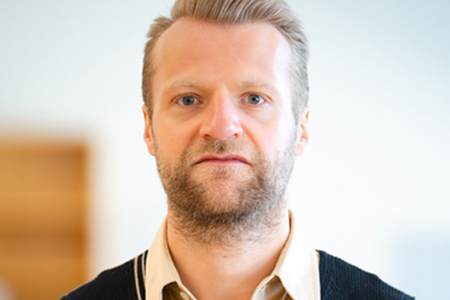
Stephan van Vliet
Stephan van Vliet
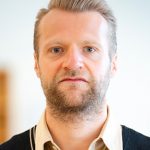 Dr. Stephan van Vliet is a nutrition scientist with metabolomics expertise in NDFS. He earned his PhD in Kinesiology as an ESPEN Fellow from the University of Illinois at Urbana-Champaign and received training at the Washington University in St Louis School of Medicine and Duke University School of Medicine.
Dr. Stephan van Vliet is a nutrition scientist with metabolomics expertise in NDFS. He earned his PhD in Kinesiology as an ESPEN Fellow from the University of Illinois at Urbana-Champaign and received training at the Washington University in St Louis School of Medicine and Duke University School of Medicine.
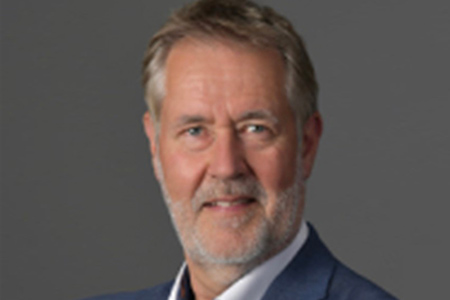
Wilhelm Windisch
Wilhelm Windisch
 Wilhelm Windisch is a full professor of Animal Nutrition at the Technical University of Munich (TUM), Germany, since 2010. As an agricultural scientist, he finished his doctorate in 1988 and his habilitation in 1995. Before his appointment at TUM, he was a full professor of Animal Nutrition at the University of Natural Resources and Life Sciences Vienna (BOKU), Austria (2002-2010). He studies nutritional properties of feed materials and principles of biomass transformation in the metabolism of agricultural livestock with a particular interest in minerals, functional dietary compounds including antinutritive substances, and the impact of livestock feeding on food quality, food safety, and the environment.
Wilhelm Windisch is a full professor of Animal Nutrition at the Technical University of Munich (TUM), Germany, since 2010. As an agricultural scientist, he finished his doctorate in 1988 and his habilitation in 1995. Before his appointment at TUM, he was a full professor of Animal Nutrition at the University of Natural Resources and Life Sciences Vienna (BOKU), Austria (2002-2010). He studies nutritional properties of feed materials and principles of biomass transformation in the metabolism of agricultural livestock with a particular interest in minerals, functional dietary compounds including antinutritive substances, and the impact of livestock feeding on food quality, food safety, and the environment.
SCIENTIFIC COUNCIL COMMUNITY
RELATED DOCUMENTS